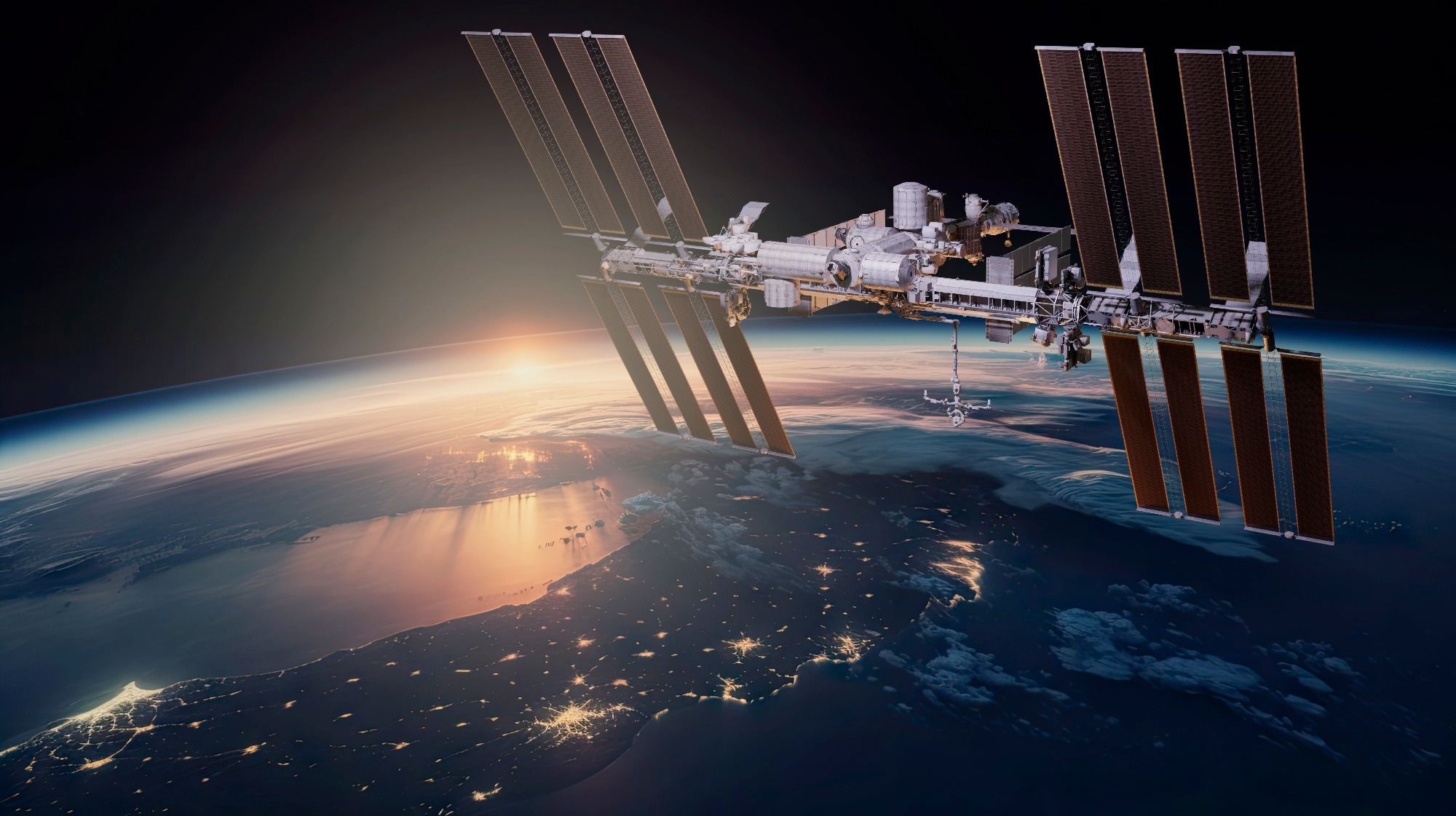Space is a hostile environment for humans, posing multiple health risks, including the ability to induce immune system changes during spaceflight. This immune system dysregulation can have severe consequences for space missions.
In 2021, the European Space Agency initiated the Terra Novae program, which has three destinations, including the Moon, Mars, and low Earth orbit. Next-generation astronauts associated with Terra Novae will be screened pre-flight to predict and alleviate their reactions to space conditions to ultimately preserve their well-being.
A recent study published in npj Microgravity describes how microgravity and radiation affect the immune system.
 Study: Next generation of astronauts or ESA astronaut 2.0 concept and spotlight on immunity. Image Credit: Jbruiz / Shutterstock.com
Study: Next generation of astronauts or ESA astronaut 2.0 concept and spotlight on immunity. Image Credit: Jbruiz / Shutterstock.com
Effects of space conditions on immune cells and development
Numerous studies have examined the effects of spaceflight on immune cell development. For example, monocyte progenitors and granulocytes were reduced in rodents in space or when exposed to anti-orthostatic suspension.
Likewise, one study using an amphibian model observed elevated transcription of immunoglobulin M (IgM) heavy chain and reduced expression of Ikaros, the lymphoid-determining transcription factor, thereby suggesting an impact on the development of B-cells.
Mice flown onboard a satellite for a month exhibited changes in the expression of proteins involved in immune cell and bone development in their femurs. B-cells were also reduced in the spleen and bone marrow of these mice one week after landing. Similarly, murine fetal thymus under simulated microgravity (sμG) revealed a decline in T-cell maturation stages.
One study showed increases in neutrophils upon short and long spaceflight, albeit the cells had reduced phagocytosis capacity. An increased neutrophil-lymphocyte ratio was also reported when leukocytes from healthy donors were subjected to sμG. This was also evident in astronauts after a six-month expedition to the International Space Station (ISS).
A recent study reported that real microgravity (μG) and sμG reduce the differentiation of hematopoietic progenitors into macrophages. This study also noted reduced polarization into pro-inflammatory M1 or anti-inflammatory M2 macrophages. Reactive oxygen species (ROS) production by macrophages was shown to increase under space conditions.
The cytotoxic ability of natural killer (NK) cells decreased under μG and sμG conditions. Dendritic cell (DC) proliferation from progenitor cells in human blood was suppressed under sμG, along with the reduced expression of cluster of differentiation 80 (CD80) and major histocompatibility complex (MHC) class II molecules.
Early studies on cultured human cells indicated alterations in cytoskeletal structures under microgravity. Recently, actin cytoskeleton alterations were demonstrated in cancer cells under microgravity during a parabolic flight.
Altered gene expression patterns have been observed in space-flown T-cells. Lymphocyte responses toward mitogens were reduced in cosmonauts and astronauts after spaceflight.
A six-month stay on the ISS caused no changes in B-cell counts. Nevertheless, one study reported an altered IgM repertoire in two cosmonauts who spent six months on the ISS.
Immunizing an amphibian model during a five-month spaceflight revealed changes in antibody production and somatic hypermutation rate. Notably, the number of monocytes appears to remain relatively stable during short spaceflights but increases during an extended mission.
Knowledge gaps and recommendations
Determining the responses and adaptation of immune cells following prolonged exposure to radiation, stress, and microgravity are not sufficiently understood and require further investigation. Dust inside space vehicles could also provoke eye and skin irritation in astronauts and should be addressed for extended missions.
Studying irritation and infection due to contamination with microbial, Martian, or lunar material could also be relevant. Vaccination of astronauts before and during spaceflights should be considered for maximum protection against infectious diseases.
There is no evidence of an increased risk of autoimmunity due to spaceflights. However, this should not be neglected, as previous research suggests a possible association.
Cosmic radiation is a significant threat for cancer development during long space missions; therefore, identifying the underlying mechanisms is crucial. The reactivation of latent viruses is another significant threat and must be monitored during space missions.
To mitigate these concerns, researchers recommend standardizing the methodologies for experiments and analyses related to immunity, and establishing a database of space- and ground-based integrative research findings. Another recommendation was the development of novel tools to study the immune system and the integration of immune system analyses with other tissues/organs to preserve astronauts' health.
Greater collaboration among space physiology researchers would help better delineate astronauts physiology during deep spaceflights. Recently, an initiative suggested a protocol for specific immunologic countermeasures for deep-space exploratory missions.
Journal reference:
- Jacob, P., Oertlin, C., Baselet, B., et al. (2023). Next generation of astronauts or ESA astronaut 2.0 concept and spotlight on immunity. npj Microgravity 9(1):51. doi:10.1038/s41526-023-00294-z